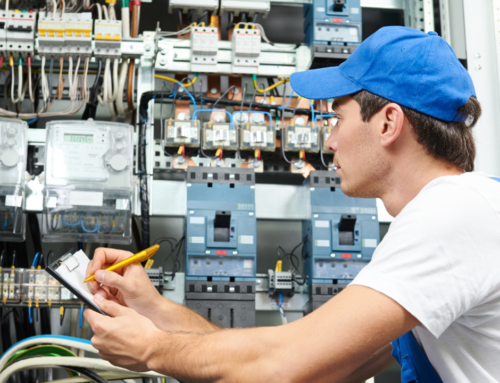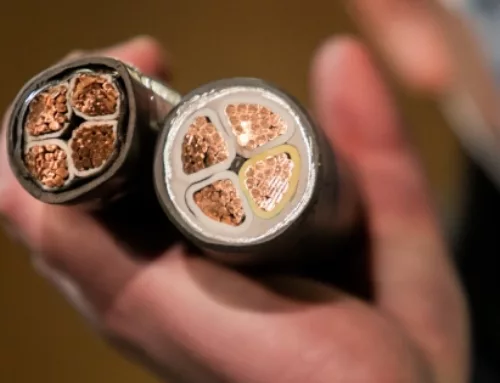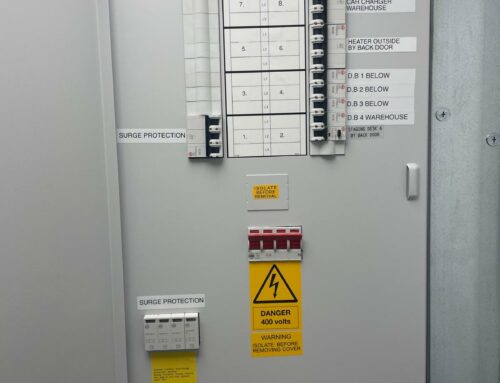As a business owner or commercial property manager, ensuring the safety of your building’s electrical systems is paramount. One of the most effective ways to identify potential hazards and ensure compliance with safety regulations is through an Electrical Safety Audit. An Electrical Safety Audit is a comprehensive review of your electrical systems to identify risks, prevent issues, and enhance the safety of your workplace. This article outlines what you can expect during a commercial electrical safety audit, including key areas of inspection and the benefits it provides.
1. Initial Consultation and Preparation
Before the audit begins, the commercial electrician or electrical safety expert will typically conduct an initial consultation. This allows them to understand the specifics of your electrical system, the size of your building, and any previous electrical issues or concerns you may have encountered.
They may ask questions about your building’s electrical history, such as the age of your electrical systems, previous upgrades, and any past incidents, such as power outages or electrical fires. Based on this information, the electrician will create an action plan for the audit and may request access to certain areas of the building, such as electrical panels, circuit boards, and wiring systems.
2. Inspection of Electrical Panels and Distribution Systems
One of the primary areas of focus during an Electrical Safety Audit is the condition of your electrical panels. The auditor will check for the following:
- Overloading: Electrical panels that are overloaded with circuits can cause fires or damage to the entire electrical system.
- Correct labelling: All circuit breakers should be clearly labelled to indicate which part of the building they control.
- Physical condition: Panels should be free from dirt, rust, or wear, which can compromise their safety and performance.
- Proper grounding: An effective grounding system is essential for preventing electrical shocks.
The auditor will also check the distribution systems to ensure that power is being effectively and safely distributed throughout the building.
3. Wiring and Connections Inspection
Faulty or outdated wiring is one of the most common causes of electrical hazards. During the Electrical Safety Audit, the auditor will inspect the wiring throughout your property to look for:
- Frayed or damaged wiring: Exposed wires or damaged cables can pose a serious risk of electrical shock or fire.
- Outdated wiring: Older buildings may have wiring that doesn’t meet modern safety standards, which can be unsafe or inefficient.
- Loose or faulty connections: Loose connections in outlets, switches, or circuit breakers can lead to overheating and cause fires.
- Compliance with local codes: All wiring should meet the latest electrical safety codes and regulations.
The auditor will also check for any instances of improper modifications to the wiring, as these can significantly increase the risk of electrical accidents.
4. Inspection of Electrical Devices and Appliances
The auditor will also inspect electrical devices and appliances within the commercial property. They will check:
- Condition of equipment: Older or damaged electrical devices can be dangerous and should be replaced or repaired.
- Correct installation: Appliances should be installed according to manufacturer guidelines and safety standards.
- Energy efficiency: The auditor may also provide recommendations on upgrading to energy-efficient systems to reduce energy consumption and enhance safety.
The goal is to ensure that all electrical devices are working correctly and safely, and that none are creating a potential hazard.
5. Grounding and Earthing Systems
Proper grounding is essential for electrical safety, as it helps prevent electrical shock and provides a safe path for stray electricity. The auditor will inspect your grounding and earthing systems, including:
- Grounding rods and cables: These should be intact and properly connected to the electrical system.
- Earth leakage: The auditor will check for any issues related to earth leakage, which could indicate potential electrical hazards.
Ensuring the grounding system is up to code is a vital part of the Electrical Safety Audit.
6. Fire Safety and Emergency Systems
An Electrical Safety Audit also includes a review of fire safety measures and emergency systems. The auditor will assess the placement and functionality of:
- Fire extinguishers and alarms: Electrical systems should be in good condition to prevent fires, and emergency equipment should be properly maintained.
- Exit routes: The auditor will check that emergency exits are clear and easily accessible, especially in the event of an electrical emergency.
This step ensures that your building is equipped to handle electrical fires or other emergencies efficiently.
7. Documentation and Recommendations
After the audit is complete, the electrician will provide a detailed report outlining their findings. This will include:
- Identified hazards: A list of any electrical risks discovered during the audit.
- Compliance status: Whether your electrical systems are up to date with local safety codes and regulations.
- Recommended repairs or upgrades: The auditor will provide suggestions for any necessary repairs, upgrades, or replacements to ensure optimal electrical safety.
- Priority levels: Some issues may be more urgent than others, and the report will prioritise which areas need immediate attention.
8. Post-Audit Follow-Up
Depending on the findings, the auditor may offer ongoing support or even recommend further inspections. If there are significant issues, you may be advised to schedule immediate repairs or upgrades.
Conclusion
An Electrical Safety Audit is an essential service for ensuring the ongoing safety of your commercial property. By identifying potential hazards, ensuring compliance with safety regulations, and recommending improvements, an audit helps protect your building, employees, and customers from electrical risks. Regular audits not only reduce the likelihood of electrical accidents but also help your property operate more efficiently and cost-effectively. Partnering with a professional commercial electrician to conduct regular safety audits is an investment in the long-term safety and reliability of your electrical systems.






Leave A Comment